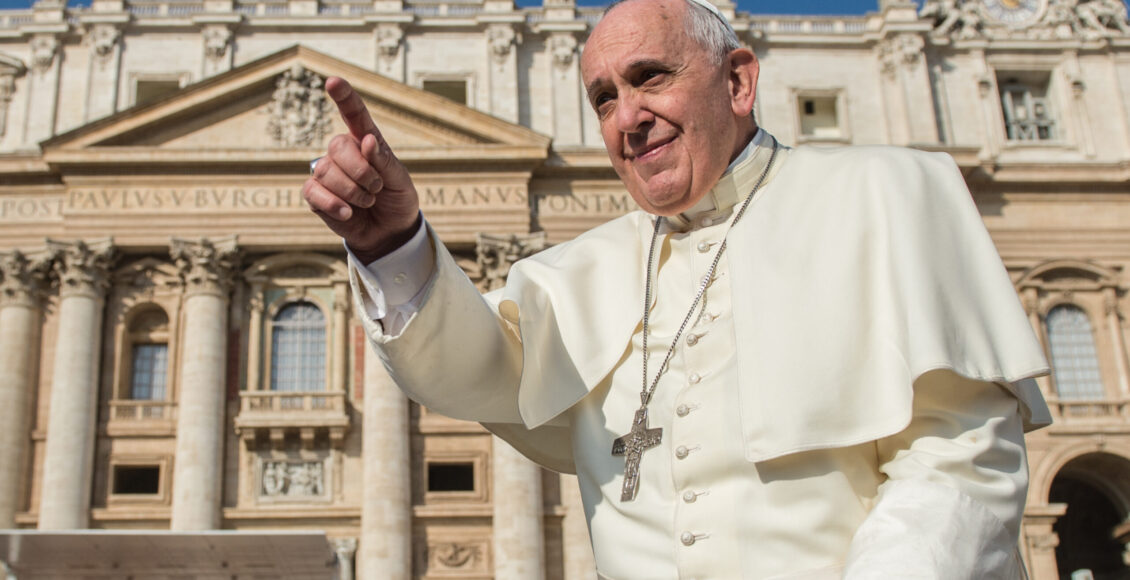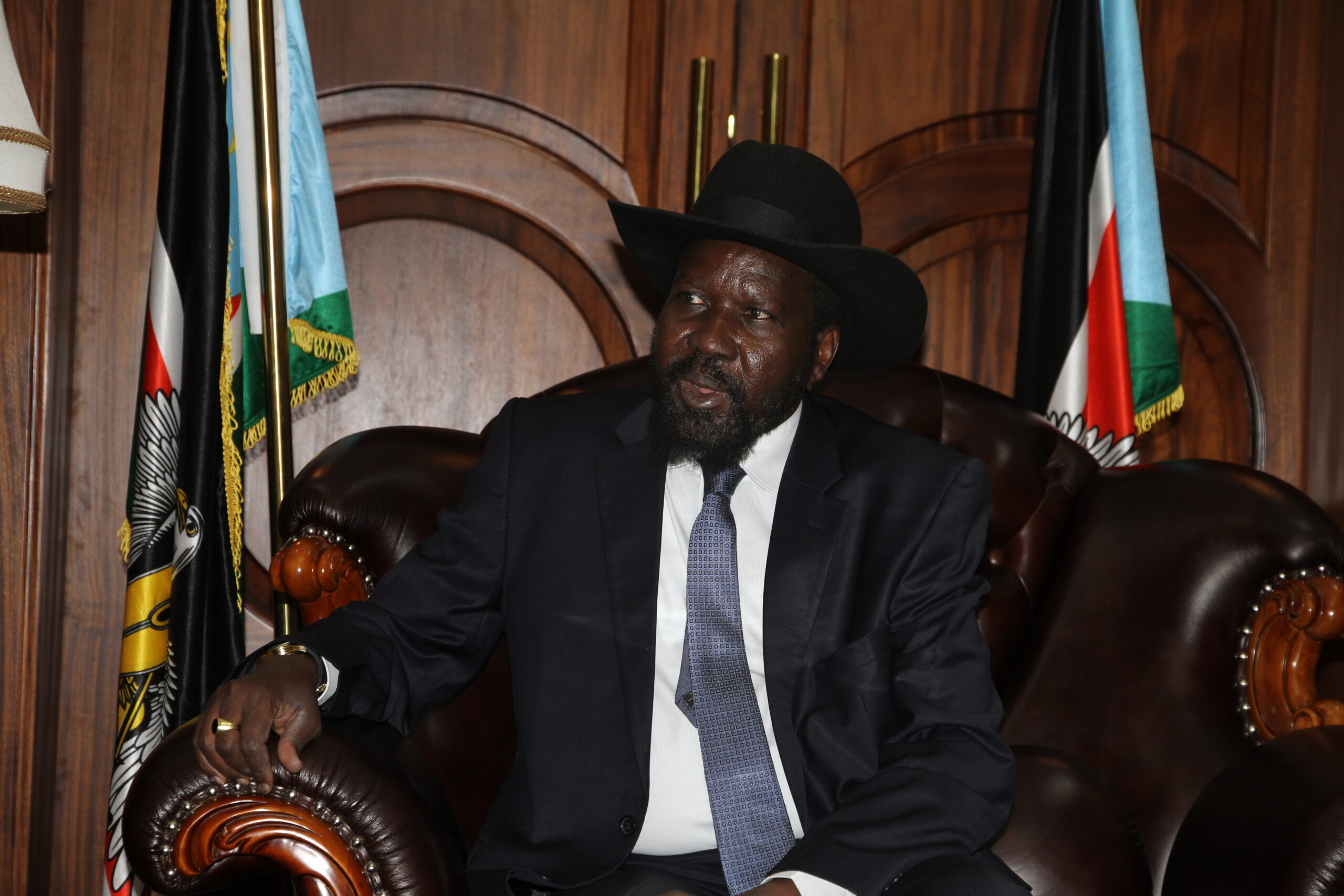Pointing to the Future: Why Prosperity for the Catholic Church Lies in Africa

Africa is the future of the Catholic Church and Pope Francis’s latest humanitarian trip demonstrates the importance of the continent to the Vatican. On January 31, 2023, Pope Francis began his “Pilgrimage of Peace” to the Democratic Republic of the Congo (DRC) and South Sudan. Joined by the leaders of the Anglican Church and the Church of Scotland, the Pope visited the Congolese capital Kinshasa before Juba, the capital of South Sudan. The goal of the Pope’s trip was to remind the world not to ignore the decades-long conflicts within these countries and to continue to advocate for peace.
20 per cent of the world’s Catholics live in Africa, with the continent having the fastest growing Christian population in the world. In the DRC, close to half of the population is Catholic and, for most, the Church operates similarly to the state. In South Sudan, approximately 40 per cent of the country is Catholic. While the Pope’s mission is to restore peace within the DRC and South Sudan, Professor Khalid Medani, Chair of African Studies at McGill University, emphasizes that this trip is also an attempt to revitalize Catholicism worldwide by showcasing the devout population in Africa. As the Catholic population in the West declines, Africa has become a hub for Christianity that the Vatican needs to retain its longevity. Catholics have historically lived in Europe but today the majority of Catholics live outside the Global North. Ultimately, this trip is a key step in Pope Francis’ attempt to take the Catholic Church in a new, more socially progressive direction that is more compatible with global liberalism that had become undergirded by secularism, especially in Europe and North America. This includes more Vatican outreach in Africa, specifically focusing on addressing issues of colonialism and economic dependency.
In line with his progressive stance, the Pope condemned economic colonialism, calling it “equally as enslaving” as European colonialism. However, economic colonialism is in many ways a result of European colonialism, in which Christianity played a significant role; as European colonizers left, Euro-centric economic institutions that were established in former colonies remained. Now, this denunciation of economic colonialism attempts to separate the Vatican from past roles in colonization while still seeking the benefits from the division it has caused. Professor Medani agrees the Catholic Church’s involvement in Africa is a form of neo-colonialism. Medani states that colonization was a “civilizing” mission underpinned by Catholicism and some of the Vatican’s actions are reminiscent of the colonial past. The Pope’s denunciation of Tribalism is an example of remaining inline with the colonial narrative as he attempts to subvert and delegitimize tribal organization.
Partially as a result of colonialism, the DRC and South Sudan have vulnerabilities that allow for exploitation. While the Pope himself called out economic exploitation, his presence in the conflict-torn countries can be seen in a similar light. Professor Medani asserts that “the Catholic Church has lost legitimacy among the very highly educated and wealthier population in the West,” making it so the charitable narrative of spreading peace in conflicted areas no longer resonates. Medani further explains the vulnerabilities within conflict torn countries like the DRC and South Sudan have allowed for the Pope to carry out his mission of spreading peace and revitalizing Catholicism while not actually addressing the root causes of conflict, or proposing solutions.

Professor Medani asserts that in both the cases of the DRC and South Sudan interethnic disputes are only a symptom of the root cause: the rent-seeking tendencies of militias and leaders who are intent on accumulating as much wealth as possible. It’s not just a domestic issue as other regional and international actors who profit from the militias and leaders holding power as actors gain access to resources; oil in South Sudan and diamonds, copper, and cobalt in the DRC. However, the complexity of these conflicts and other root causes cannot be forgotten as they have been by international actors like the Pope. Dominant narratives in the media have pointed to natural resources as the main cause of the conflict in the both countries, a digestible headline to readers, but not the full story. In the DRC, conflict over resources only amounts to about 8% of fighting (Autesserre). In Dangerous Tales: Dominant Narratives on the Congo and Their Unintended Consequences, Severine Autesserre points to disputes over cattle, charcoal, timber, drugs, and taxation at checkpoints as other root causes of the conflict, demonstrating how resolving these conflicts will require much more than the Pope’s platitudes about peace.

While the UN has called the Catholic Church “a powerful and active force in building peace and reconciliation in conflict-torn regions,” the Church has done little to provide a steadfast solution to these conflicts. The United Nations, according to Professor Medani, would be better served to bring the warring parties together to implement peace agreements; the Pope did not provide any solution of this caliber. Despite the discourse that the Pope is starting, the root causes of the conflicts in the DRC and South Sudan have not been addressed. Rather, Medani suggests that the narratives of peace that the Pope is conveying may actually embolden and legitimize dictatorial leaders. This is because as the Pope met and engaged with corrupt leaders such as Felix Tshisekedi, President of the DRC and Salva Kiir Mayardit, President of South Sudan, he legitimized their leadership roles by recognizing their venal administrations who continue to perpetuate these conflicts.
Since 1996, the conflict in the DRC has killed somewhere between 3.5 and 5.4 million people, while the conflict in Sudan has killed an estimated 400,000 since 2003, displacing 2.5 million more. While the Pope’s visit highlights the importance of peace and forgiving one another, it is important to remember that trips like this can distract from the root causes of conflicts and real solutions that should be addressed.
Featured Image: Pope Francis by Catholic Church England and Wales is licensed under CC BY-NC-ND 2.0
Edited by Dima Kiwan
